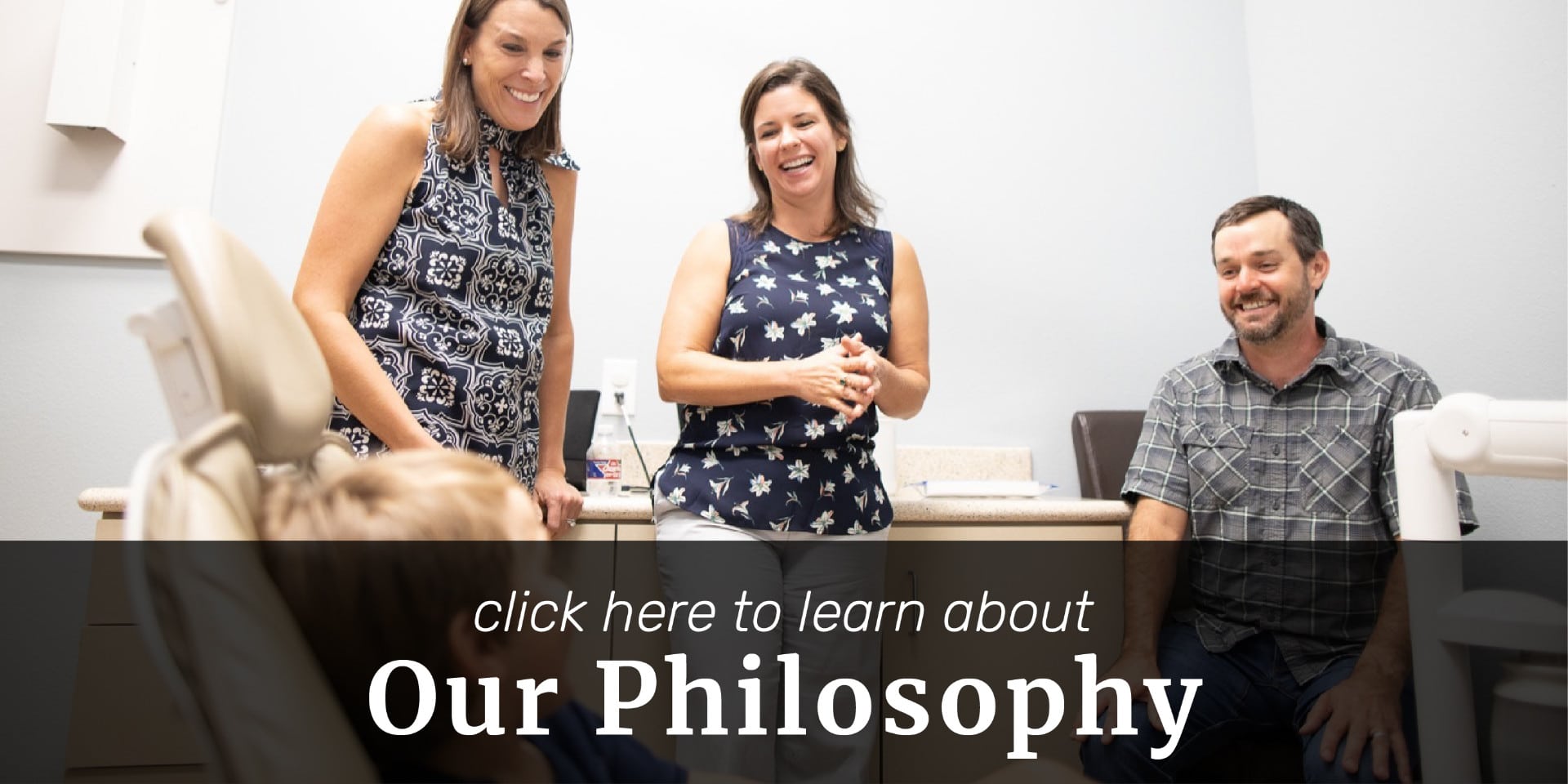As we get older, our bodies change — and so do our mouths. But aging doesn’t mean you have to give up on your smile. With the right habits and regular dental care, it’s possible to maintain healthy teeth and gums well into your later years.
At Beavers & Broomfield Family Dentistry, we want to help you protect your smile for the long haul. Here’s how aging impacts your oral health and what you can do at every stage to stay ahead of it.
How Does Aging Affect Your Teeth and Gums?
Just like your bones and muscles, your teeth and gums respond to the natural aging process. Some of these changes happen slowly, while others might show up suddenly or catch you off guard. Being aware of what to expect makes it easier to prevent problems before they start.
Here are a few ways your mouth may change over time:
- Thinner enamel: Years of chewing, brushing, and acid exposure can wear away the enamel that protects your teeth. As it thins, you may notice more sensitivity or a higher risk of cavities.
- Dry mouth: Many common medications, including those for blood pressure, allergies, and depression, can reduce saliva flow. Without enough saliva, your teeth are more vulnerable to plaque, bacteria, and decay.
- Gum recession: As we age, gum tissue can naturally pull back from the teeth. This can expose the roots, making them more sensitive and more prone to decay.
- Jawbone changes: Bone density often decreases with age, especially in people with osteoporosis. Weakened jawbones can cause teeth to loosen or shift, and may complicate dental treatments later on.
- Oral cancer risk: Adults over the age of 40 are more likely to develop oral cancers. Regular dental checkups are one of the best ways to catch early warning signs.
According to the CDC, nearly 20% of adults over 65 have untreated tooth decay, and more than two-thirds show signs of gum disease. These issues are preventable with the right approach.
Oral Health by Age
Your smile goes through a lot over the years. Each stage of life brings unique oral health needs, so it helps to know what to expect and how to care for your teeth at every age.
In Childhood (Ages 0–12)
- This is when lifelong habits begin. Kids should start seeing a dentist by their first birthday or when their first tooth appears.
- Cavities are common in baby teeth, especially if brushing habits or diet aren’t well managed.
- Sealants, fluoride treatments, and early orthodontic screenings can set the stage for a healthier future.
In the Teen Years
- Hormonal changes during puberty can make gums more sensitive or inflamed.
- Braces or aligners are common during this time, which means extra attention to brushing and flossing is needed.
- Teens may also start making more food and hygiene choices on their own, so education and routine are key.
In Your 20s
- Wisdom teeth often erupt during this decade, and may require removal if they’re impacted or misaligned.
- Young adults may skip dental visits after leaving home, which can lead to problems later.
- Early gum disease, enamel erosion, and grinding due to stress are common — regular checkups help prevent long-term damage.
In Your 30s
- Subtle enamel loss and early gum issues may become more noticeable.
- Stress-related habits like clenching or grinding may impact your bite or jaw.
- Routine cleanings, fluoride use, and nighttime protection can help preserve your smile.
In Your 40s
- Dry mouth can become more common due to medications or health changes.
- Gum recession and sensitivity often begin to appear.
- Preventive care, including cleanings and screenings, becomes even more important.
In Your 50s
- Bone loss in the jaw may begin to affect tooth and gum stability.
- Cavities can form around older dental work or along the root surfaces.
- Talk to your dentist about fluoride treatments and bone support if needed.
In Your 60s and Beyond
- The risk of gum disease and tooth loss increases.
- Dentures, implants, or bridges may become part of your care plan.
- Even if you no longer have natural teeth, regular dental visits are essential for maintaining soft tissue health and screening for oral cancer.
Tips to Protect Your Smile
Healthy habits make a lasting difference, no matter your age. These simple strategies help strengthen teeth, prevent gum disease, and support overall oral health:
- Brush twice a day using fluoride toothpaste and a soft-bristled or electric toothbrush.
- Floss daily using traditional floss, floss picks, or a water flosser.
- Use fluoride to protect your enamel. Talk to your dentist about prescription-strength options if you have high cavity risk.
- Stay hydrated, especially if you experience dry mouth. Sip water regularly and consider sugar-free mints or sprays designed to stimulate saliva.
- Limit sugar and acids, which can wear down enamel and feed cavity-causing bacteria.
- Eat for your teeth by focusing on calcium-rich foods like dairy, leafy greens, almonds, and fortified grains.
- Avoid smoking, which increases your risk of gum disease, oral cancer, and tooth loss.
- Replace worn dental tools every few months to keep them effective and gentle on your teeth.
If you’re dealing with arthritis or mobility limitations, ask your dentist for tool recommendations. A larger-handled toothbrush, an electric brush with a pressure sensor, or pre-threaded flossers can make daily care easier and more effective.
When to See a Dentist
Even if your teeth feel fine, regular dental checkups are essential. Preventive visits help catch issues early and keep your smile strong.
Make an appointment if you notice:
- Bleeding, swollen, or tender gums
- New or worsening tooth sensitivity
- Loose teeth or changes in how your bite feels
- Pain when chewing or brushing
- Sores, patches, or lumps in your mouth that don’t heal
- Bad breath that lingers
- Discomfort with dentures or dental appliances
Even patients with full dentures should continue dental visits. Your dentist will check your jawbone, screen for oral cancer, and help ensure your appliances fit comfortably and safely.
Frequently Asked Questions About Oral Health and Aging
Can dental issues get worse faster as you age?
Yes. Changes in enamel, saliva, and bone support can make it easier for issues to develop quickly. Regular checkups and good daily care help slow this process.
Why does dry mouth become more common as you get older, and what can help?
Many medications reduce saliva flow. Staying hydrated, chewing sugar-free gum, and using dry mouth products can help. Let your dentist know if dry mouth is a concern.
Do people in their 30s and 40s need to worry about receding gums?
Yes. Recession often starts earlier than people realize. Catching it early and treating inflammation can help prevent tooth sensitivity and decay.
Are older adults more likely to get oral infections or sores?
They can be, especially with reduced immune response or dry mouth. It’s important to watch for changes and report anything unusual to your dentist right away.
Can aging impact how dentures or dental appliances fit?
Yes. Your bone and gum tissue can shift over time. Dentures may need to be adjusted or relined to maintain comfort and function.
How does overall health (like diabetes or medications) affect your mouth as you age?
Conditions like diabetes increase the risk of gum disease and infections. Medications may affect saliva or healing. Your dentist and doctor can work together to support your health.
Should I switch to a different kind of toothpaste or toothbrush as I get older?
Possibly. If you experience sensitivity or mobility issues, consider toothpaste for sensitive teeth and an electric brush with ergonomic design.
What can you do in midlife to avoid tooth loss later on?
Stay consistent with brushing, flossing, and dental visits. Address small issues early and talk to your provider about fluoride treatments and bone health support.
A Lifetime of Smiles Starts with Care
No matter your age, your oral health matters. With consistent care, smart choices, and support from your dental team, you can protect your smile well into your 70s, 80s, and beyond.
At Beavers & Broomfield Family Dentistry, we’re here to help you navigate every stage with confidence. Whether you’re adjusting to new changes or just keeping up with your routine, we’ll make sure your care fits your life.
Ready for your next checkup? Call us today and let’s keep your smile going strong.






